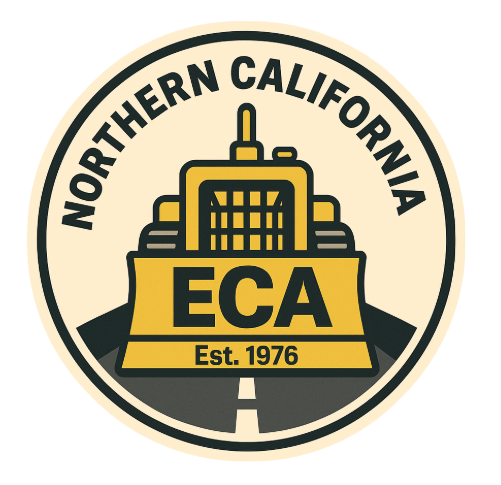Chair Lacey Torkelson Smith wants you to know about the Jamie Lane celebration taking place (clickhere) to honor the ECA and Dave Weller for helping make housing affordable for some families that can use the help. Many thanks to all the donors! Click here for list!
Falls
Falls are a serious problem? When you consider that each hour in the United States 19 people are injured by falls, or that a fatal fall accident occurs every 37 minutes, you must agree that the fall problem is significant. Falls in the United States are the number two accident killer, ranking only behind traffic accidents as a cause of accidental death. Falls on the job account for about 30% of all injuries. Last year close to 1,600 employees died and over 300,000 were injured from falls on the job.
Click HERE for more info.
First Aid
It is an excellent idea for construction workers and for everyone to know first aid fundamentals: how to stop bleeding, start breathing, start a stopped heart beating again, and give any other vitally needed care until professional help arrives. Whether or not you have had any first aid training, you should know this principle that is too often forgotten in many emergencies:
Click HERE for more info.
Fire Watch General Safety
The National Fire Protection Association (NFPA) reported that in a four-year span, US fire departments responded to an average of 4,600 structure fires involving hot work activities each year. Fortunately, there are many safeguards that can assist in preventing these incidents. Utilizing fire watch personnel during hot work activities is one effective safeguard in preventing fires.
Click Here for more info.
Surveying on a Construction Site Hazards
Surveying is a relatively repetitive and low-hazard task on its own. However, surveyors on construction sites face many different hazards while completing their work.
It is important to evaluate the work environment and eliminate as many hazards as possible prior to beginning surveying activities onsite.
Click HERE for more info.
Dust Hazards in Construction
There are many different hazards on any single construction site. Dust can be one of them. Dust can cause a variety of issues from health concerns to physical hazards for workers who are exposed to it. It is important to understand the issues dust causes and what steps that should be taken to prevent its related hazards onsite.
Click HERE for more.
Zero Injuries in the Workplace
There are many arguments both for and against having the goal of experiencing no injuries over a year’s time or indefinitely on the job. At the management level and the field level, many employees feel that experiencing zero injuries over a long time is incredibly unrealistic.
Because of perception, many employees are put off by the amount of effort it would take to achieve zero injuries. This should not be the case. No one should be put off towards safety due to a company setting zero injuries as its goal.
Click HERE for more.
Dump Truck Operations Safety
End dump, articulating dump trucks or just regular dump trucks are found on almost every single construction site and many other kinds of work sites.
While the task of getting loaded, hauling material, dumping the material, and repeating sounds simple, there are a lot of associated hazards with the operation of this equipment.
It is important not to be complacent as the operator of this equipment or as the ground personnel working around this equipment.
Click HERE for more.
News you can Use
Roger Hermsmeyer Obituary (1942 – 2022) – Clio, CA – Press Democrat (cleveland.com)
Fentanyl deaths resulting from our open border policy to the South are killing 100,000 United States citizens each year. That is the equivalent of a jumbo jet crash every day killing all passengers on board. Every day!! Vote!
200,000 illegal border crossings each month from Mexico, is the equivalent of 22 jumbo jets carrying 300 passengers every single day into the United States. Vote!
PLA-The City of Santa Rosa is poised to present and vote on a Project Labor Agreement for public works construction. Because of the ECA’s ability to influence local policies, we have been asked to bring a few folks to a meeting on Tuesday to discuss some possible exceptions that will be considered to include in the PLA going to Council in September. I am grateful for being asked to influence the content of the PLA, and hope our meeting goes well on 8-16-22. Thank you also to Team G, GCC, GBI and Argo for agreeing to participate in this very important meeting with the City of SR. More to come—-
From Bill Olmo and the American Subcontractor Association of California from 20 years or so ago, their position statement policy on PLA’s: Click here and here
From United Contractors-their position/policy on PLA’s-
file:///C:/Users/John/AppData/Local/Microsoft/Windows/INetCache/Content.Outlook/DQK8R2Z3/United%20Contractors%20-%20Official%20Position%20on%20PLAs%20(08.2022).pdf
Covid reminder- On February 9, 2022, Governor Newsom signed a new law requiring employers to provide supplemental COVID-19 paid sick leave during 2022 through September 30, 2022. The law, SB 114, unlike the supplemental paid sick leave law passed in 2021, provides for no offsetting tax credits for employers to assist with the added costs this paid sick leave places on businesses across the state. Here are five reminders for California employers about the law and its related deadlines as we approach its September 30th expiration:
Three Types of Poor Housekeeping Hazards
Housekeeping is a basic foundation for not only a safe workplace but also a productive one. When housekeeping is poor at a worksite, employees are more likely to be hurt on the job.
The unsafe conditions present due to poor housekeeping is often a contributing factor or a direct cause for workplace injuries.
It is important to realize the impact housekeeping has on your ability to work safe.
Click HERE for more.
